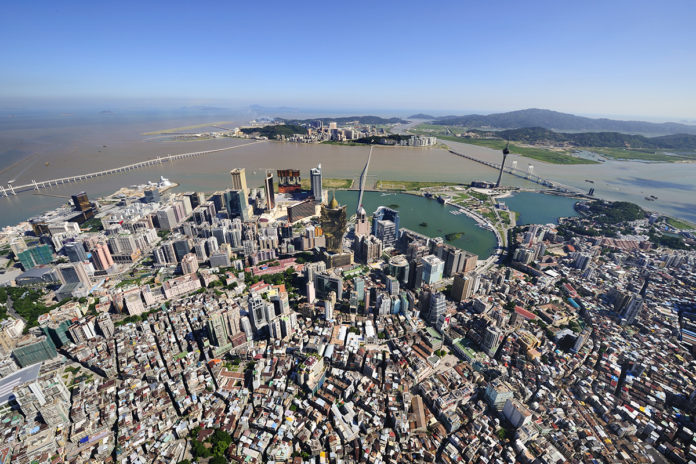Macau’s real Gross Domestic Product (GDP) was 49.1 percent higher in the second quarter year-on-year, according to official figures. The government has also revised upwards the economic growth in real terms for the first quarter, from 30.1 percent year-on-year to 31.4 percent. Although the numbers are impressive by any measure, how correct are Macau’s GDP data? Economist Albano Martins says the figures are exaggerated. According to Mr Martins, no actual deflator is used for exports of gaming services, which pushes up the final real GDP figures. Exports of gaming services are the main component of Macau’s GDP and the component for which no deflator is used. It has led to the situation where the city is posting real GDP rates higher than the corresponding nominal GDP rates, although Macau is not facing deflation. Indeed, it is facing quite the opposite. For instance, Macau posted 41.2 percent nominal GDP growth for the second quarter, almost eight percentage points below the real GDP growth rate, a situation Mr Martins said was “absurd”. Real GDP is adjusted for inflation. Nominal GDP is not. Economists usually regard real GDP as a more accurate measure of an economy’s output over time. Revision loomingWhen asked by Macau Business to clarify the use of GDP, the Statistics and Census Service said it was working on a major revision of Macau’s GDP, which is scheduled to be released later this year. “The major revision, undertaken regularly every five to six years, will incorporate the latest international recommendations applicable to Macau, new sources of data, re-examination of methods used, as well as a revised GDP series,” the bureau said. Mr Martins says that if exports of gaming services had been deflated using the implicit deflator used for private consumption, Macau’s second quarter real GDP growth rate would have been 39.7 percent instead of 49.1 percent. Last year, real GDP would have actually contracted by around 2.3 percent instead of growing, as officially stated, by 1.3 percent. Mr Martins also says Macau should publish its GDP statistics more swiftly, noting that the city takes longer to come up with its figures than the world’s biggest economies, the United States and the mainland. Last month, Secretary for Economy and Finance Francis Tam Pak Yuen said he expected Macau to post real GDP growth of no more than 30 percent for all of 2010. He said GDP growth would slow in the second half, because in the equivalent period last year Macau had “already entered a stage of recovery” from the global financial crisis. Inflation to stay ‘relatively high’ Secretary for Economy and Finance Francis Tam Pak Yuen expects Macau’s inflation rate to remain “relatively high” in the second half of 2010. “The government will keep an eye [on inflation] and it will set up measures to alleviate the pressure on citizens,” Mr Tam said. He said several external factors were likely to keep the inflation rate up, such as the pataca’s exchange rate against the yuan. Macau’s Composite Consumer Price Index (CPI) was 2.55 percent higher in August than a year before because of increases in the price of food and non-alcoholic beverages. August’s Composite CPI was 0.21 percent lower than July’s. The average Composite CPI for the first eight months of the year increased by 2.26 percent year-on-year. For the 12 months ended August, the average Composite CPI was up 1.38 percent year-on-year.
—
























